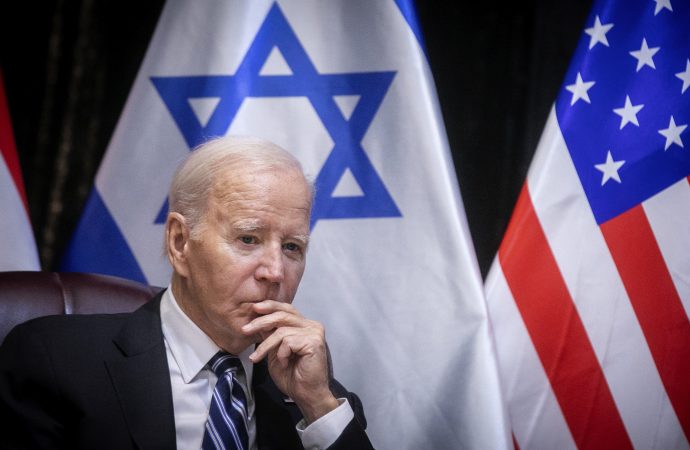Introduction As tensions in Gaza persist, President Biden’s approach to the crisis has come under intense scrutiny, with critics arguing that the US looks feckless. This article examines the challenges faced by the Biden administration, the potential consequences of perceived inaction, and the broader implications for US foreign policy in the Middle East. The Current
Introduction
As tensions in Gaza persist, President Biden’s approach to the crisis has come under intense scrutiny, with critics arguing that the US looks feckless. This article examines the challenges faced by the Biden administration, the potential consequences of perceived inaction, and the broader implications for US foreign policy in the Middle East.
The Current Landscape:
With ongoing clashes between Israel and Palestine, the Biden administration finds itself navigating a complex geopolitical terrain. The perception of US strategy in addressing the Gaza conflict has sparked debates, both domestically and internationally.
Challenges Faced by Biden’s Gaza Strategy:
1. Balancing Act:
The Biden administration faces the challenge of striking a delicate balance between supporting its ally, Israel, and addressing the concerns of the international community regarding the rights and well-being of Palestinians.
2. Regional Dynamics:
The broader context of Middle Eastern geopolitics adds layers of complexity. The Biden administration must consider the potential ramifications of its actions on regional stability and alliances.
3. Public Perception:
Public sentiment is a critical factor. Critics argue that the perceived lack of decisive action by the US makes it appear feckless, raising questions about the effectiveness of its foreign policy in the region.

Image by: https://www. ft.com
Potential Consequences of Perceived Inaction:
1. Erosion of Credibility:
The perception of fecklessness can erode the credibility of the United States on the global stage, impacting its ability to influence outcomes and navigate future crises.
2. Regional Power Dynamics:
The perception of US inaction may alter power dynamics in the region, potentially emboldening certain actors and diminishing the influence of the US in the Middle East.
3. Diplomatic Fallout:
The ongoing crisis has the potential to strain diplomatic relations, not only with nations directly involved but also with international partners critical to US foreign policy objectives.
Comparative Table: Assessing Biden’s Gaza Strategy
| Aspect | Previous Approaches | Current Challenges and Criticisms |
|---|---|---|
| Balancing Act | Varied responses | Struggling to maintain equilibrium |
| Regional Dynamics | Evolving strategies | Navigating complex geopolitical landscape |
| Public Perception | Mixed reviews | Growing criticism of perceived inaction |
Conclusion:
As the Biden administration grapples with the complexities of the Gaza conflict, the perceived fecklessness of the US strategy becomes a pivotal point of discussion. The challenges are multifaceted, encompassing regional dynamics, diplomatic considerations, and the delicate balance of public perception. Stay informed as we analyze the evolving situation and its broader implications for US foreign policy in the Middle East.

















Leave a Comment
Your email address will not be published. Required fields are marked with *